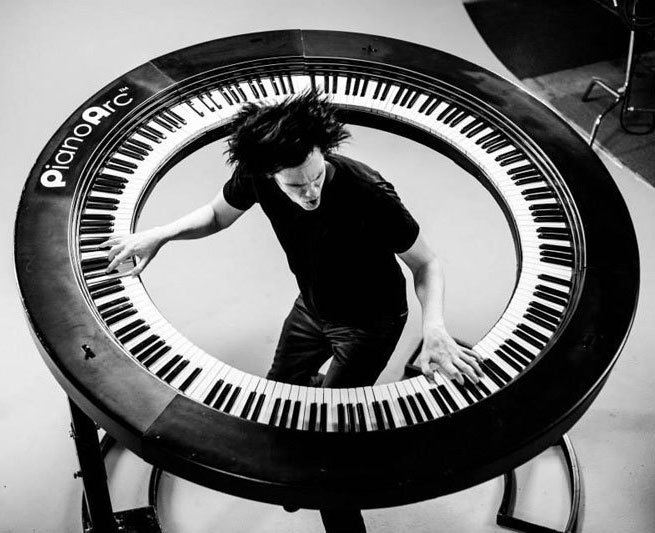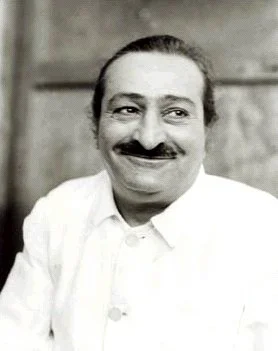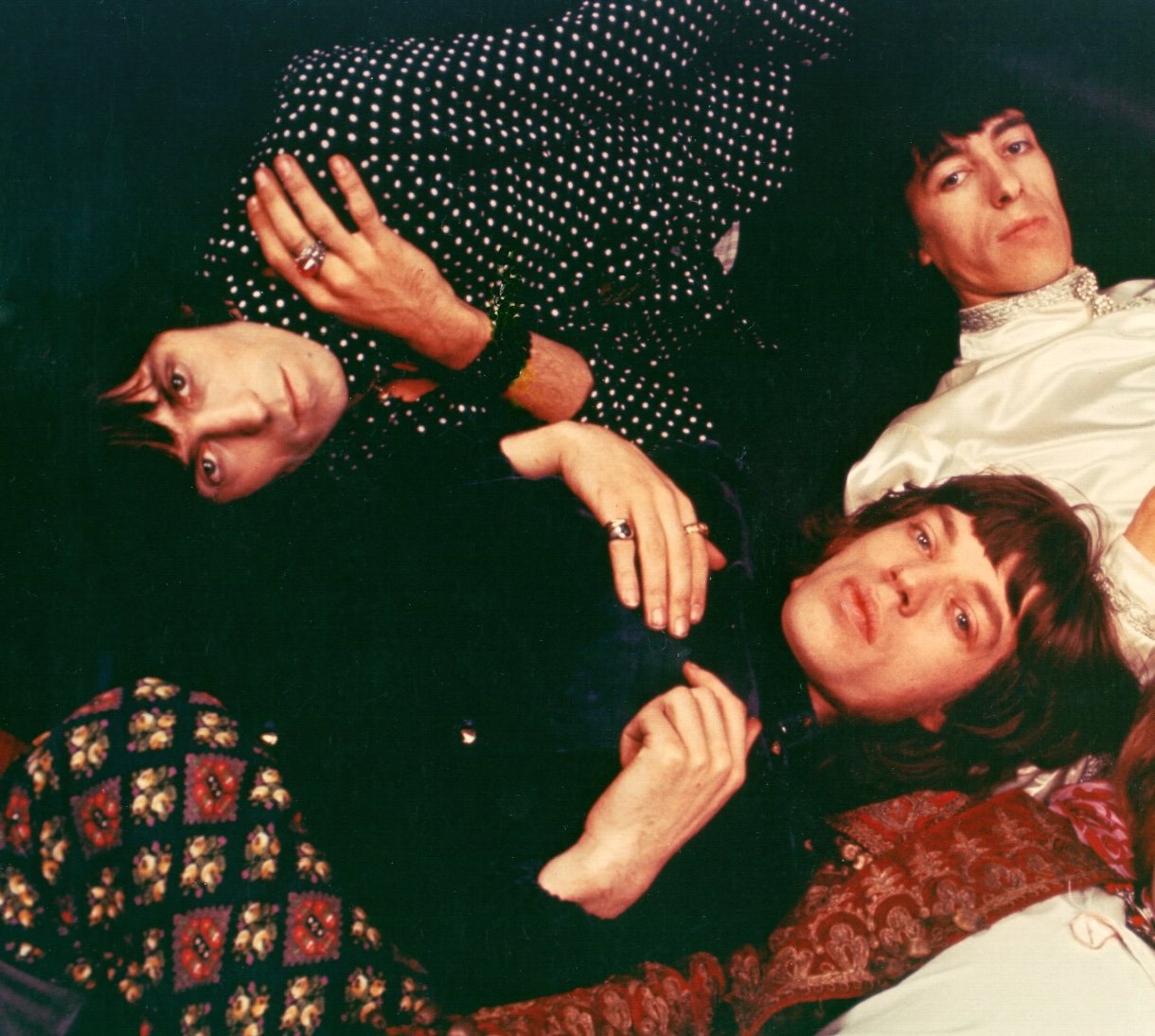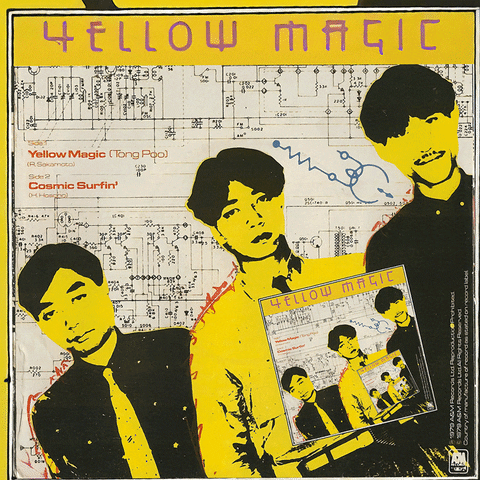By The Landlord
“The end of a melody is not its goal: but nonetheless, had the melody not reached its end it would not have reached its goal either.” – Friedrich Nietzsche
“There is no real ending. It’s just the place where you stop the story.” – Frank Herbert
“Great is the art of beginning, but greater is the art of ending.” – Henry Wadsworth Longfellow
“I left the ending ambiguous, because that is the way life is.” – Bernardo Bertolucci on La Luna (1979)
“The principle of the endless melody is the perpetual becoming of a music that never had any reason for starting, any more than it has any reason for ending.” – Igor Stravinsky
“I don't think the Cure will end, but I can make up an ending if you want me to.” – Robert Smith
“Ending a sentence with a preposition is something up with which I will not put.” – Winston Churchill
“To convey one's mood.
In seventeen syllables.
Is very diffic–.” – Haiku, John Cooper Clarke
“In the eyes of those who anxiously seek perfection, a work of art is never truly completed, but abandoned,” wrote Paul Valéry, later credited by WH Auden when writing about poetry, and in turn Gore Vidal in quoting film-maker Jean Cocteau. But what makes for an original and perfect finish in songs or instrumental music?
In the past, some topics have touched on parallel areas, such as songs with great intros, songs with a twist, and closest and most recent, striking songs to end albums, resulting in excellent playlists chosen by ParaMhor, inspiration taken from all of these nominations. That topic covered entire songs or album ending pieces, and for in the intro piece, I picked out some unusual examples of endings in books, film and TV. This time, any song, wherever it appears in an LP’s running order is relevant, but it must contain a standout ending that is different, original, unusual or memorable, musically or even lyrical form.
There are lots of non-outro, conventional ways to end a song, such as repeating the chorus, fading out, ending with a satisfying drum roll or where all instruments join in a tumbling crescendo and bang. Other ways might be to just repeat a main riff, sing the first line of the song again or even the entire first verse, or just cut the song short. These all work perfectly well, but are so common they don’t count for this week’s subject.
Songs with outros, or codas, generally have something more to offer. Strictly speaking a coda (Italian for tail, as well the shorter codetta, little tail) is a self-contained new section at the end of a piece or song, while an outro tends to run without a break into what has gone before, but let’s not split hairs here, as they both have a similar, discernible role, taking the work to new place. In jazz, barbershop and some church music, a coda can also be called a tag.
What does a coda, or outro do? It might build on, but develop and change what has gone before. It might suddenly take a surprising new direction go to a complete tangent, changing instruments, key or lyrical content. It could alter the perspective, mood or experience of the song, deliver a twist, but also change and hopefully brings some new value to the song. It might reflect on the subject matter, enhance or invert it. Perhaps it might bring an upbeat or downbeat mood, or even leave a feeling of open-endedness.
It’s worth remembering that this topic is not just about the very end, but also the beginning of the end, how a song transitions into its outro or coda too.
And stylistically, while it’s conventional to make it obvious when a song is finishing, some outros, or codas might keep us guessing, leaving ambiguity or a sense of unresolved, or leave us with questions rather than answers. Is that how life, or single life events end?
This could turn out to be a very big topic, attracting many songs, so let’s jump briefly into some obvious examples of songs previously chosen for past topics, to allow ground for other material to take root in 2023.
Of course we need to mention some big zeds by The Beatles, arch experimentalists in the late 60s, with A Day In The Life (chosen for great middle eights), ending with that final swirling nightmare-end-of-the-world dizzying feeling of an orchestral crescendo, and that final huge reverberant E-major chord played on three pianos by John Lennon, Paul McCartney, Ringo Starr and studio assistant Mal Evans, ringing out into eventual fade for 40 seconds.
Or of course, Hey Jude (chosen appropriately enough for na-na-hey-hey songs), with that repeated chord sequence of the root, sixth and flattened seventh allowing Macca to leap about vocally over that endlessly repeated singalong phrase after the main portion of the song.
Obvious too are two of Pete Townshend’s most prominent coda songs for The Who that were originally intended for his Lifehouse rock opera project. Baba O'Reilly (chosen before for songs about teenagers) has an extensive organ and Irish jig violin coda written in homage to the Indian mystic, Meher Baba. Pete used a Lowrey Berkshire Deluxe TBO-1 organ and his modal approach was inspired by the composition work of Terry Riley. Another massive rock epic, Won’t Get Fooled Again (songs about change) goes off into that extraordinary extended synth coda before leaping back into that dramatic ending.
Indian mystic Meher Baba, inspiration for Pete Townshend extended codas
Another classic previously chosen in which a different instrument comes to the fore? Layla by Derek & the Dominoes (songs about lust) of course, with Jim Gordon’s piano coda accompanied by a Clapton guitar solo outro alongside Duane Allman’s slide guitar.
King Crimson’s 21st Century Schizoid Man (picked for opening album tracks) is a proggy coda standout with the sheer brilliant mayhem of Robert Fripp’s chromatic power-chord progression and anarchic acceleration of the entire band. Or for even more indulgence, why not re-visit the full on whig-out outro of the Edgar Winter Group’s wonderfully monstrous Frankenstein, which seems to never quite end, and was previously chosen, appropriately, for ‘songs that seem to fit every topic’?
The Rolling Stones, of course, weren’t afraid of a big outro jam themselves. Can't You Hear Me Knocking was recorded in a single take, ending in a very refreshing improvisational combination of Keith, naturally, and Mick Taylor on guitar as well saxophonist Bobby Keys, organist Billy Preston, conga player Rocky Dijon, and pianist Nicky Hopkins.
Never-ending? Mick, Keith and co …
Quieter, or more unusual codas and outros? David Bowie surely offers much fertile ground in this area, but while we can’t A-list, for example, Five Years (picked for meta-songs) with that soft drum coda echoing the start of the song, there are many other examples, including at least one track where Mick Ronson’s blistering guitar outro solo takes the number to a whole new place.
The late-60s and early 70s clearly seem to be a purple patch for the epic coda and outro, but let’s not hover solely on that period. Prince playfully created many creatively ways to end a song, notably, of course, with Purple Rain (chosen for ‘eccentric songs’), in which after the final chorus, a guitar solo draws us in piano solo which then pulls us orchestral strings coda that changes the timbre and mood of the song completely much longer the album version, one I was delighted to experience in full when catching the Purple One.
Then there’s The Stone Roses’ I Am The Resurrection (chosen twice as it happens, for ‘showing off’ songs and ‘I am’ songs) which has a wonderfully tight stop-start jamming coda section where you never quite know when the ending will finally happen. Improvised codas may offer fertile ground, and there are many artists with coda-including songs simply built on sharp, inventive improvisation, including, for example much work Talking Heads. But it’s all about the unusual ending.
I could go on and on, with a topic introduction that indulgently never actually, er, ends itself. So that’s enough dipping into the past and obvious. So what outros and codas give you a happy, strange, or inspiring ending? Do they come surprise explosion or a subtle sense of infinite and unresolved possibility? What innovations do they bring musically or lyrically? Do they leave you confounded, shocked, mystified or satisfied?
An explosive coda …?
Or with an sense of mystery and open-ended infinity?
It’s time to open it up to you, learned readers, and to this week’s inspired guest guru with a sagacious sense of an ending, the amazing AmyLee! Place your song suggestions, with a YouTube link and a brief description of what makes the outro or coda special, in comments below before the deadline bell at 11pm UK time on Monday for playlists published next week. That then, will definitely bring a notable conclusion.
New to comment? It is quick and easy. You just need to login to Disqus once. All is explained in About/FAQs ...
Fancy a turn behind the pumps at The Song Bar? Care to choose a playlist from songs nominated and write something about it? Then feel free to contact The Song Bar here, or try the usual email address. Also please follow us social media: Song Bar Twitter, Song Bar Facebook. Song Bar YouTube, and Song Bar Instagram. Please subscribe, follow and share.
Song Bar is non-profit and is simply about sharing great music. We don’t do clickbait or advertisements. Please make any donation to help keep the Bar running:





